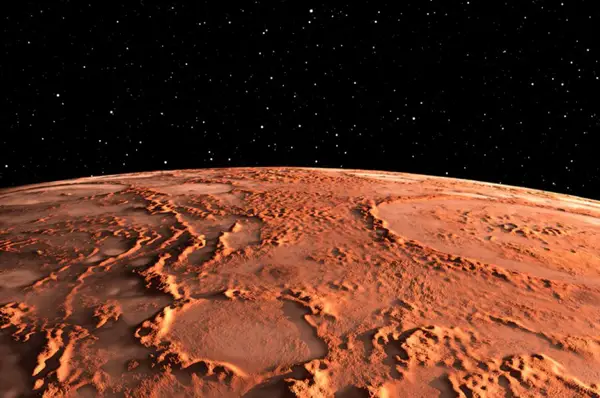Meteorites that hit Mars every day are revealing new information about the frequency of impacts thanks to seismic data collected by the lander Insight from the NASA. Analyzing this data, an international team of researchers found that InSight’s SEIS seismometer detected six nearby seismic events, all linked to an atmospheric acoustic signal typical of meteorites.
These events have been identified as a new class of earthquakes, known as very high frequency (VF) events. impacts that generate VF earthquakes occur in a fraction of a second, much more quickly than earthquakes caused by tectonic processes.
A new way to study Mars
For the first time, the seismic data were used to determine the frequency of impact crater formation on the red planet. According to the researchers, “While we cannot definitively rule out a non-impact origin for every VF event, we demonstrate that the VF class as a whole is plausibly caused by meteorite impacts.”
Traditionally, the rate of meteorite impacts on Mars has been estimated by comparing the frequency of craters on its surface with that expected based on lunar craters. However, Mars is particularly prone to meteorite impacts, being located near the asteroid belt and having a greater mass and gravity than the Moon.

The implications of VF earthquakes
Seismic events detected by SEIS have revealed that meteorites hit Mars at speeds greater than 3,000 meters per second. This led to the creation of the VF classification for these impacts. Using images from the Mars Reconnaissance Orbiter (MRO), researchers confirmed the presence of new craters at the locations of seismic events detected by SEIS.
Thanks to this data, it was possible to estimate the frequency of these earthquakes, calculating that between 280 and 360 VF events occur each year. The ability to foresee These impacts could one day help protect future space missions and, perhaps, astronauts on Mars.
These meteor impacts Not only do they provide information about the age of the planet’s surface, but they could also help determine periods when meteorite risk is highest, improving safety for future exploration.
What do you think?
Does it surprise you to know that Mars is constantly being hit by meteorites? Leave a comment and share your opinion!
#Mars #day #hit #meteorites